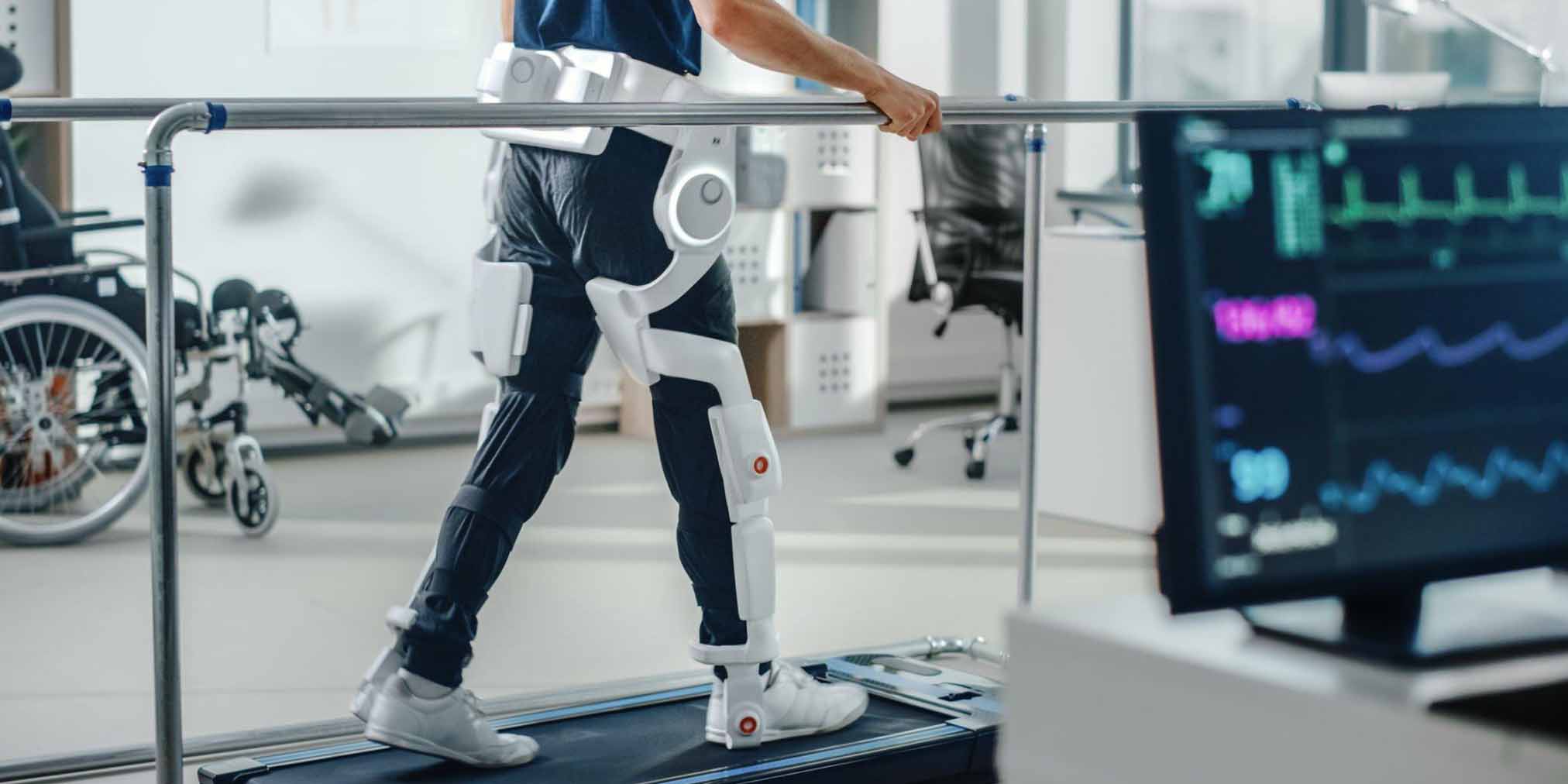

September 6, 2023
AI Progress in Healthcare and Its Future Outlook
Artificial Intelligence, or AI, is no longer a concept confined to science fiction; it has become a reality and is transforming many industries, including healthcare. With its vast potential to process massive amounts of data and identify patterns that may not be visible to humans, AI is rapidly changing the face of healthcare.
The applications are endless, from predicting patient outcomes to improving drug discovery and development. AI is also being used to develop more accurate and efficient diagnostic tools, paving the way for personalized medicine.
As we enter the year 2023, the future of AI in healthcare looks promising. It is a fascinating time to explore the current state and the future possibilities of this rapidly advancing technology.
In this blog, we’ll explore the current state of AI in healthcare and where we can expect it to go in the coming years.
What is AI in Healthcare?
AI has caught the attention of experts across a wide range of industries, one of which is healthcare. The potential applications of AI in healthcare are vast, from predicting the likelihood of certain diseases to assisting in developing personalized treatment plans.
With the ability to analyze large amounts of data and detect patterns that are often invisible to the human eye, AI can revolutionize every aspect of healthcare, from diagnosis to treatment to follow-up care. While there are many exciting possibilities, there are also essential questions regarding data privacy, ethical concerns, and the role of human expertise in healthcare decision-making.
Nonetheless, it is clear that AI holds great promise for the future of healthcare and has the potential to make a meaningful impact on patient outcomes and the overall quality of care.

Present State of AI in Healthcare
The present state of AI in healthcare is marked by its potential to revolutionize how we diagnose and treat different illnesses. For instance, AI-powered software can analyze medical images accurately and provide faster results. It can also study large datasets and develop new insights to improve healthcare quality.
Moreover, AI is now vital in developing personalized treatment plans tailored to patients’ unique needs. With this incredible technology, we can expect to see a transformation in healthcare that will lead to better patient outcomes and lower costs for care.
How Will AI Impact Healthcare in 2023?
AI assists in the diagnosis and treatment of kidney disease.
AI-driven applications and solutions for the healthcare industry are rapidly changing how we diagnose and manage diseases such as kidney disease. Kidney disease is a condition that affects millions of people worldwide, but with AI, it’s possible to detect it early by analyzing patient data and predicting risk factors. AI is also making it easier for doctors to manage patients with kidney disease by analyzing their symptoms and medical history.
In 2023, AI will become an indispensable tool for healthcare practitioners who want to provide personalized treatment options for patients with kidney disease. As the world becomes more reliant on AI, there’s no doubt that it will continue to transform the healthcare industry in incredible ways.

AI searches through cancer research documents.
In the world of healthcare, cancer is one of the deadliest diseases. But what if there was a way to improve our understanding of it through the use of artificial intelligence? In 2023, AI is expected to scour documentation for cancer studies, providing medical professionals with more accurate and comprehensive information on this complex disease.
By analyzing thousands of records and articles, AI can help identify patterns and correlations, potentially leading to more effective treatments and cures. The impact of AI on healthcare continues to grow, and its potential for improving patient outcomes is truly groundbreaking.
Examining the Current Use Cases of AI in Healthcare
Diagnostics and Disease Prediction
AI has revolutionized the healthcare industry in recent years, especially in the realm of diagnostics and disease prediction. The ability of AI to analyze vast amounts of patient data and identify patterns has led to improved accuracy in diagnosing various diseases, including cancer, Alzheimer’s, and heart disease.
AI algorithms can also predict the likelihood of developing certain diseases based on various risk factors, allowing doctors to be proactive in their treatments. By utilizing AI in diagnostics and disease prediction, healthcare providers can provide patients more personalized and effective care, potentially saving lives and improving overall health outcomes.
Patient Monitoring and Care Coordination
The use of artificial intelligence in healthcare has become increasingly prevalent in recent years, particularly in the areas of patient monitoring and care coordination. Through AI-powered remote patient monitoring systems, healthcare professionals can gather and analyze patient health data in real-time, allowing for quicker diagnosis and treatment of conditions.
Additionally, AI can aid in care coordination by automating appointment scheduling and medication reminders, freeing healthcare workers to focus on more complex tasks. These advancements in healthcare technology have the potential to drastically improve patient outcomes and revolutionize the way healthcare is delivered.

Treatment Optimization and Personalized Medicine
As the healthcare industry continues to evolve with advancements in technology, the current use cases of AI in treatment optimization and personalized medicine have become increasingly prominent. With its ability to analyze vast amounts of patient information and identify patterns, AI has already shown promise in predicting which treatments will likely be adequate for individual patients.
This level of personalized medicine has the potential to revolutionize the way we approach healthcare, allowing for tailored treatment plans that improve patient outcomes and reduce healthcare costs. As AI continues to be integrated into healthcare systems, the possibilities for treatment optimization and personalized medicine are limitless.
Automating Administrative Tasks
In today’s healthcare industry, AI integration has been transforming how tasks are carried out. One of the required methods that AI is being used is for automating administrative tasks. This helps healthcare providers to reduce their workloads, save time, and utilize their expertise where it is more required.
AI systems can automatically handle mundane jobs like scheduling, billing, and data entry, freeing staff for more demanding work. Hospitals and clinics utilize this technology, significantly enhancing the organization’s efficiency. With AI implementing automation, the healthcare industry can focus more on delivering comprehensive patient care.
Examples of Leading Companies Utilizing AI In Healthcare
IBM Watson Health Solutions
IBM Watson Health Solutions is a leading AI technology company focusing on revolutionizing healthcare. With their advanced cognitive computing capabilities, IBM Watson is changing the face of healthcare by integrating artificial intelligence into medical practices.
By analyzing vast amounts of data, Watson can help healthcare professionals make more informed diagnoses, recommend more personalized treatments, and even predict potential health issues in patients.
Their AI-powered solutions are used in various healthcare settings, from hospitals to research centres, to improve patient outcomes and help save lives. IBM Watson Health Solutions is at the forefront of the AI revolution in healthcare, and its innovative approach is leading the way toward a healthier future.
Google DeepMind Health Initiative
Google’s DeepMind Health Initiative has been making waves in the healthcare industry with its innovative use of artificial intelligence. To improve patient outcomes, DeepMind’s technology can analyze complex medical data through machine learning algorithms to assist healthcare professionals in diagnosis, treatment, and prevention.
For example, the Streams app used in some UK hospitals helps providers identify early warning signs of acute kidney injury, which can be fatal if left untreated. This is just one example of how DeepMind is at the forefront of revolutionizing healthcare professionals work.
By utilizing AI to analyze complex data, they are helping providers to make more informed decisions and ultimately save lives.

Microsoft’s Partnership with Novartis to Develop Precision Medicine Tools
Artificial intelligence is revolutionizing healthcare, and leading companies are at the forefront of this exciting innovation. Microsoft and Novartis are partnering to develop precision medicine tools using AI, and this collaboration can potentially transform the world of healthcare as we know it.
With the power of AI, medical professionals can analyze vast amounts of complex data and identify patterns that can lead to groundbreaking medical discoveries. The amount of information available in healthcare is increasing exponentially, but with the help of AI, it can be analyzed more quickly and accurately than ever before.
The Microsoft-Novartis partnership is just one example of how AI is being implemented in healthcare to improve patient outcomes and create a brighter future for medical research.
In conclusion, artificial intelligence is already having a huge impact on the healthcare industry. In 2023, AI could completely revolutionize how healthcare professionals work and provide more efficient patient care. The potential benefits of this technology are immense, from improved patient outcomes to personalized medicine solutions. With its innovative approach to healthcare and powerful capabilities, AI has the potential to transform our world for the better in 2023.







